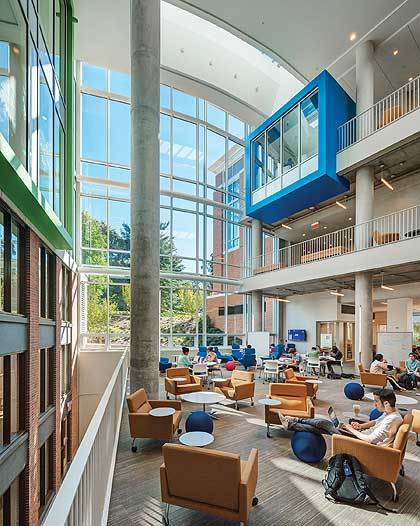Johns Hopkins UniversityEst. 1876
America’s First Research University

Established in 1995, the Berman Institute of Bioethics is one of the largest centers of its kind in the world. The Institute conducts advanced scholarship on the ethics of clinical practice, biomedical science, and public health, both locally and globally, and engages students, trainees, the public, and policy makers. The institute consists of more than 30 core and affiliated faculty from the Johns Hopkins School of Medicine, School of Nursing, Bloomberg School of Public Health, and Krieger School of Arts and Sciences. Faculty work collaboratively on scholarship and teaching in the Institute’s five areas of focus: biomedical research and discovery, ethics of clinical practice, public health ethics and health policy, research ethics, and global health ethics and research.
The Center for Talented Youth (CTY) focuses on the needs of students with exceptionally high academic abilities. The CTY community includes very bright students from all over the world whose talents place them well ahead of their age mates. These students need special attention: greater academic challenges, interaction with intellectual peers, and teaching strategies designed especially for the gifted. CTY offers gifted students and their families and schools a wide range of programs and services to nurture their intellectual abilities, enhance personal development, and foster better understanding of the needs of talented youth.
The Human Language Technology Center of Excellence is funded by a long-term multi-million dollar contract; the center’s research focuses on advanced technology for automatically analyzing a wide range of speech, text, and document image data in multiple languages. The focus of the technical program is in automatic population of knowledge bases from text, proof-of-concept experiments for robust speech technology, and stream characterization for content. These projects address key issues in extracting information from massive sources of text and speech.
For 35 years, Jhpiego (pronounced “juh-PIE-goh”) has worked with front-line health workers by designing and implementing effective, low-cost, hands-on solutions to strengthen the delivery of health care services. Known originally as the Johns Hopkins Program for International Education in Gynecology and Obstetrics, Jhpiego works to break down barriers to high-quality health care for the world’s most vulnerable populations by putting evidence-based health innovations into everyday practice. Jhpiego has an annual budget of $130 million supported by government, foundation, and corporate awards. The Jhpiego model is based on developing strong partnerships with communities, governments, and organizations to build sustainable local health care systems.
The Johns Hopkins University Press is the oldest and one of the world’s largest university presses, publishing 60 scholarly journals and nearly 200 new books each year. Award-winning lists in history, science, literary studies, political science, and medicine reach a worldwide audience of scholars, students, and discerning readers. General interest books, such as the acclaimed Johns Hopkins Press Health Books, serve a mandate to broadly disseminate the expertise of leading scholars, scientists, and physicians. The Press is also home to Project MUSE, a ground-breaking collaboration with the Sheridan Libraries at JHU launched in 1995, which provides online access to more than 380 scholarly journals for millions of students, scholars, and other readers over the internet.
The Urban Health Institute (UHI) is a collaboration with and a vital connection to the community of East Baltimore. UHI explores ways in which Johns Hopkins research, teaching, and clinical expertise can be better harnessed for the benefit of East Baltimore neighborhoods. The institute is the starting point for forging true university and community partnerships in health care, education, and community planning, drawing on the expertise of neighborhood residents, educators, philanthropic organizations, elected representatives, and community leaders. UHI is responsible to the president, reporting through the provost who convenes an advisory board that includes deans and the president of the Johns Hopkins Hospital and Health System.
Office of the Provost
265 Garland Hall
3400 North Charles Street
Baltimore, Maryland 21218
Phone: (410) 516-8070
Fax: (410) 516-8035
[email protected]
